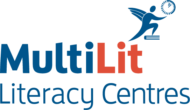NAPLAN results can feel overwhelming, but they offer valuable insights into your child’s literacy and numeracy development. Whether your child is in Year 3, 5, 7, or 9, understanding what the results mean – and what to do next – can help you support their learning journey.
It is important to note that NAPLAN is just one piece of the puzzle. It’s a snapshot of your child’s learning. Use it as a starting point for meaningful conversations with teachers and to guide support at home. When encountering concerns about your child’s literacy scores, seeking additional support can be beneficial to help them catch up to their peers and meet grade expectations.
What do the proficiency levels mean?
NAPLAN results are grouped into performance descriptors across literacy, encompassing reading, writing and language conventions (spelling, grammar and punctuation), and numeracy. Below is a breakdown of what each one means and how you can respond as a parent. When reading each descriptor, it is important to note that there is great variation in the scores of individual students. This is referred to as the scaled score across each proficiency level. A student in the ‘Strong’ proficiency level might still need help with certain skills, while another might be ready for extension based on the scaled score achieved.
Exceeding
Your child is performing well above grade expectations in literacy and/or numeracy. They are not only meeting stage-level outcomes, but they can also apply their learning across a range of contexts. This is a great opportunity to:
- ask your child’s school about extension programs or enrichment opportunities
- encourage critical thinking and problem-solving activities.
Strong
Your child is performing at or just above grade expectations. Students in this proficiency level have shown a consistent application of literacy/numeracy skills at the expected stage level. Your child’s scaled score may mean they place into this proficiency level, but they could still benefit from support if they fall in the lower end of the Strong range, so it is important to:
- look at your child’s scaled score to determine where they place within the proficiency level
- ask your child’s teacher how their progress compares to previous NAPLAN results and classroom performance
- discuss how they compare to their class and school cohort
- discuss with your child’s teacher what the next steps are to support your child’s progress.
Developing
Your child is performing below grade expectations in literacy and/or numeracy, but demonstrates a basic understanding of key concepts and skills. There may be gaps in their learning that need to be addressed through explicit instruction and opportunities to practise concepts. You can:
- look at your child’s scaled score for a clearer understanding of the areas requiring development
- ask their teacher how their progress compares to previous NAPLAN results and classroom performance
- discuss how they compare to their class and school cohort
- ask your child’s teacher what specific areas your child finds challenging and how these are being addressed in the classroom
- find out what support the school provides
- explore ways to reinforce learning at home through practice and targeted activities.
Needs Additional Support
Your child is performing well below grade expectations in literacy and/or numeracy. They show limited understanding of key concepts and difficulty demonstrating knowledge or skills with independence. In this case:
- ask about targeted interventions and individualised learning plans
- discuss what support is available both at school and externally
- work with the teacher to create a consistent support strategy at home.
What to ask your child’s teacher
When you meet with your child’s teacher, here are some helpful questions to guide the conversation:
- What do my child’s NAPLAN results say about their literacy and numeracy progress?
- How does my child’s achievement compare to their class and school average?
- Are there specific areas where my child excels or needs extra support?
- Can you recommend activities or strategies that I can use at home to support my child to improve their areas of need?
- Are these results consistent with classroom assessments?
- What would be a reasonable short-term goal we can set to improve the learning (in an identified area/s) for my child?
MultiLit Literacy Centres offer a range of support in key literacy areas. Over two terms, students typically make average gains of:
- 13 months in word reading
- 13 months in spelling
- 18 months in decoding
- 13 months in passage reading accuracy
- 11 months in passage reading comprehension.
If you have received your child’s NAPLAN results and would like to discuss how the Literacy Centres can support your child’s literacy development, contact us here.
